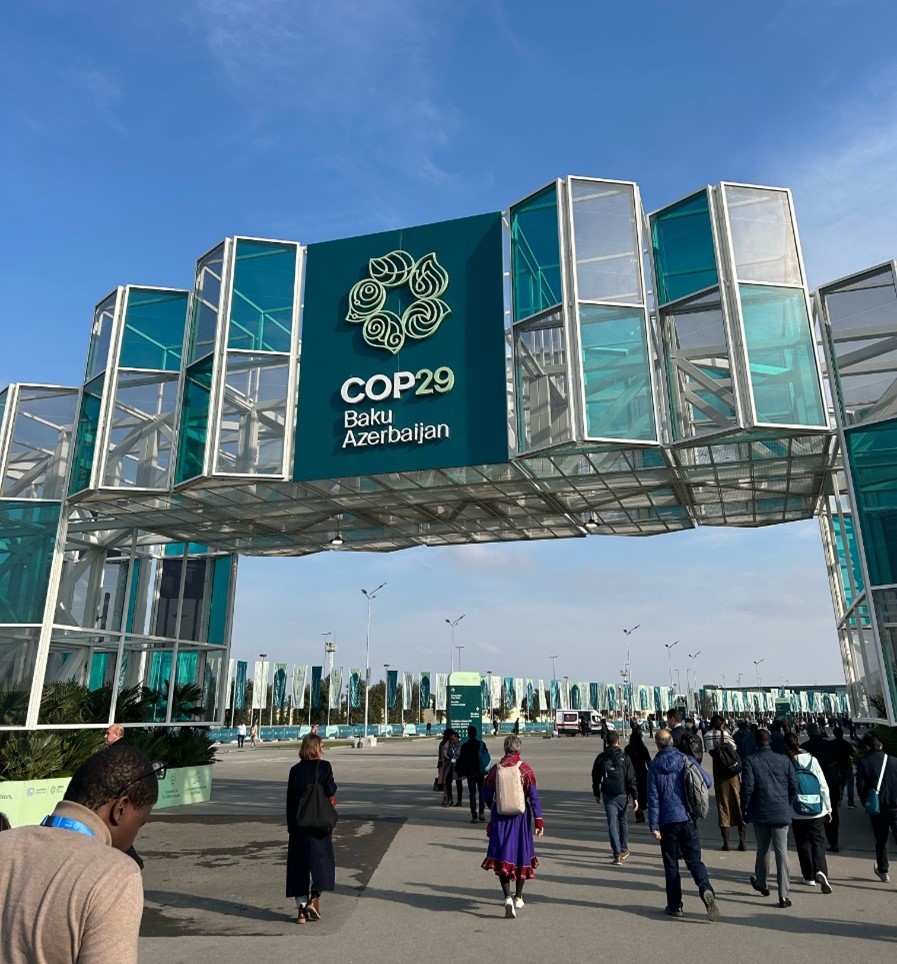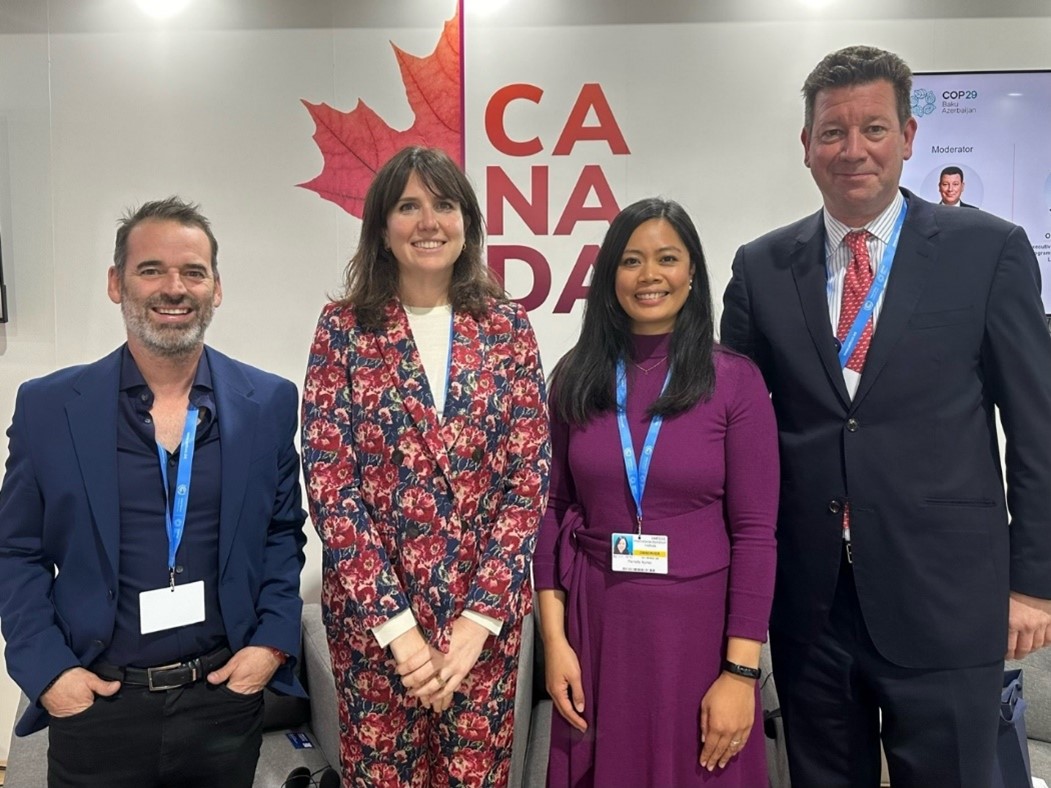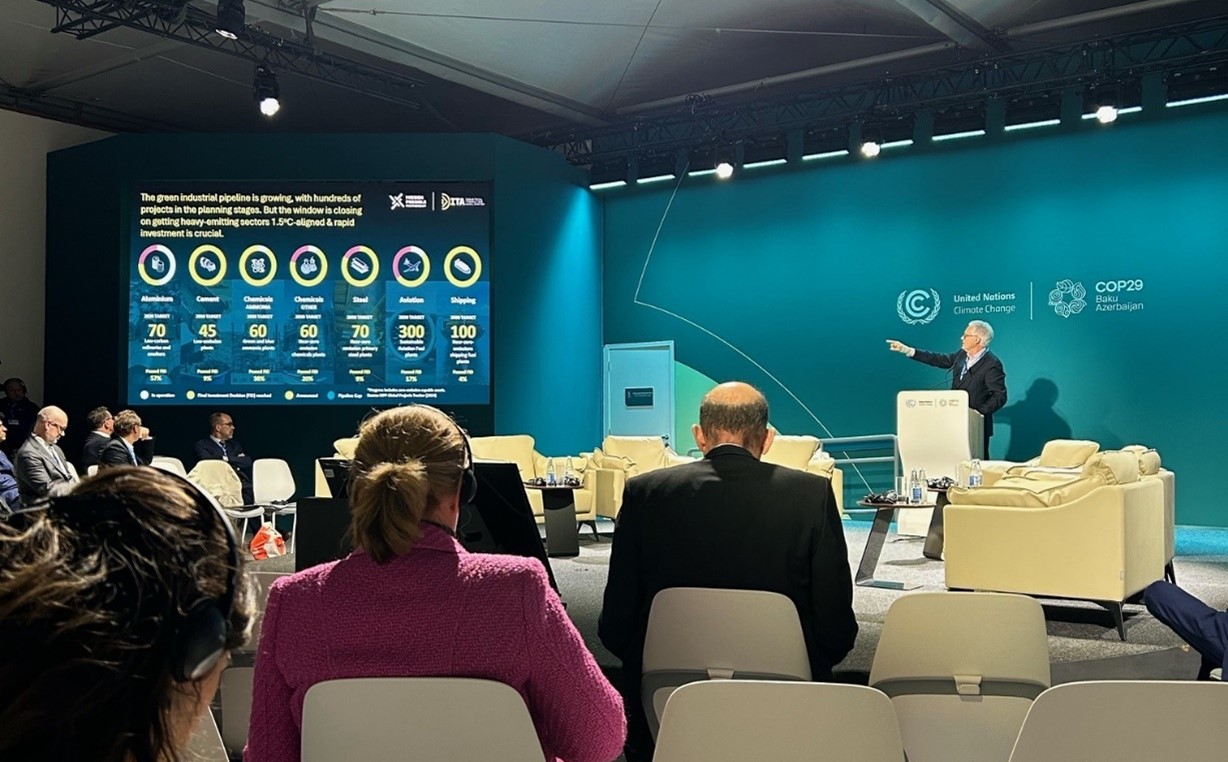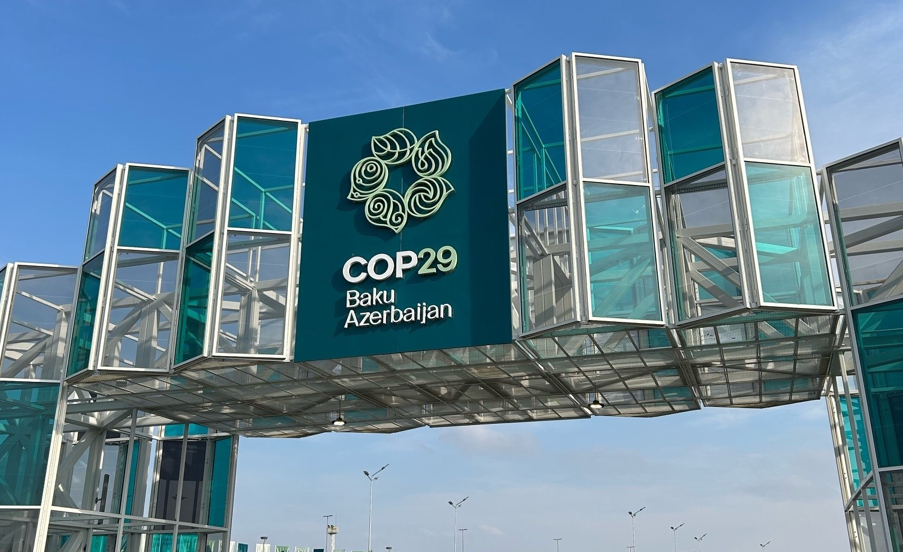Ball at COP29: Driving Industry Decarbonization with Advocacy Partners and Our Value Chain
December 11, 2024
From November 11-22, 2024, the United Nations Climate Change Conference (COP29) hosted business leaders, policymakers and sustainability voices to discuss global climate action and make progress toward decarbonization goals.

On the heels of Climate Week New York, COP29 served as another important opportunity to connect and align with some of Ball’s key stakeholders on the policy asks, technology needs, and commitments required to seize the full potential of circularity as a key lever for robust industrial policy, supply chain resilience, resource efficiency, and aluminum sector decarbonization. Insights from these groups are essential in helping us deliver innovative aluminum packaging solutions that serve the sustainability needs of our customers.
Industry Collaboration for Global Progress
Making progress toward net zero requires collaboration across private and public industries, and COP29 hosted various events of this kind. Speaking on behalf of Ball, Maria Alegre, Global Stakeholder Relations Director at Ball Corporation, participated in a panel called, “Delivering Aluminum Resources in a Low-Carbon World,” which spotlighted voices from across the aluminum industry. Here, she outlined Ball’s decarbonization efforts and positioned the importance of aluminum in a circular economy, reinforcing the need for both innovation and policy to drive progress.

The panel was hosted by the Canadian government, and Maria spoke on this panel alongside leaders from the International Aluminum Institute and Canadian construction company, WSP. Canada is the world’s fourth-largest primary aluminum producer, and Ball supports the Canadian market with its beverage packaging plant in Ontario and personal and home care packaging plant in Quebec.
A Call for Government Action
Emphasizing the importance of policy, at COP29, Ball joined other industry representatives in signing an open letter from the Industrial Transition Accelerator, urging all governments to stimulate demand for low- and near-zero-carbon materials to accelerate the decarbonization of the world’s highest-emitting industries, including aluminum, steel and cement.
The letter proposed measures such as implementing effective carbon pricing to make low-carbon materials more competitive, defining limits on whole life carbon (including embodied carbon) emissions in product standards, and setting mandatory quotas for the usage of these materials in specific sectors. These policy measures aim to drive the development of low-carbon solutions, reducing emissions, and fostering a more sustainable economy.

Session co-sponsored by the Industrial Transition Accelerator.
Ensuring Reliable Energy Supply for Industry
Aluminum production is highly power intensive. While integrating renewable energy is therefore key to decarbonizing the smelting and remelting processes, there is only so much renewable power the aluminum sector can integrate without long-duration energy storage to ensure reliable, resilient, stable electricity supply.
Hence, Ball welcomed the new Energy Storage and Grids Pledge announced at COP29, which includes an energy storage target of 1.5 TW by 2030. This pledge will fundamentally support the target set by the UAE Consensus at COP28 of tripling renewable energy capacity globally, with storage technologies enhancing the ability of grids to integrate variable renewable energy, optimize grid usage, stabilize supply and enhance energy security. It will also support greater, more secure long-duration energy storage, which will encourage the development of renewable power sources, such as wind and solar.
Looking Ahead
The discussions and outcomes of COP29 highlight both the progress being made and the challenges that lie ahead in decarbonizing the aluminum sector.
"While there is plenty of work ahead, I'm optimistic. I'm encouraged by the solutions-focused progress that has been made and the increased detail and specificity when discussing policy and technologies at these types of events," said Maria Alegre, Global Stakeholder Relations Director at Ball Corporation.
Next year’s COP30 will be hosted in Brazil, a key market for Ball and our customers. In 2023, Brazil had a 99.7% aluminum can recycling rate, and even achieved a 100% recycling rate in 2022, which is a great example of the power of collective efforts toward real circularity.
For more on Brazil’s commitment to increase recycling, read Ball’s Climate Transition Plan. As Brazil is one of the only countries with the entire aluminum value chain within its borders, we aim to have continued productive, aluminum-focused conversations at next year’s event.
